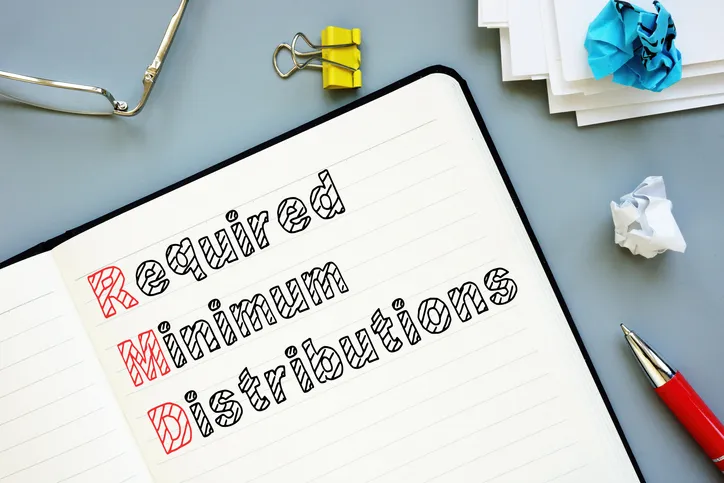Posts by Eric Reed

I’m 50 With $875k in My 401(k) and $5,000 in Monthly Expenses. When’s the Soonest I Can Retire?
Whether you’re making a budget or planning your retirement date, it typically comes down to the same basic math: how much money you can reliably generate and how does that compares to your budget. To help you estimate how much you will need for retirement, let’s work through an example of a 50 year old… read more…

What’s a Realistic Retirement Budget? I’m 55 With $620k Saved and $68k Income
There are two common ways to think about a retirement budget: you can start with the lifestyle you want or the assets you have. By focusing on a lifestyle, you can identify your target retirement income and then build savings to support that goal. For example, using the 4% rule, if your goal is to… read more…

I’m 65 With $950k in an IRA. Is It Worth It to Convert $150k per Year to a Roth IRA to Avoid RMDs and Retirement Taxes?
A Roth IRA conversion is available any time you have money in a qualifying pre-tax account. People choose to make a conversion to reduce future required minimum distributions (RMDs), spread taxes over several years and create a source of tax-free retirement income. But the success of this strategy will depend on your timing. Earlier conversions… read more…

I’m 63 With $700k in an IRA. Should I Convert $70k per Year to Avoid RMDs and Taxes in Retirement?
You can make a Roth IRA conversion at any time, as long as you have money in a qualifying pre-tax account. But the real question is whether it benefits you. Converting in your 60s, for example, can help you avoid required minimum distributions (RMDs) and future taxes on qualified withdrawals. However, doing so later in… read more…

When I Claim My $3,200 Social Security, Will My Wife Automatically Get a Spousal Benefit?
Spousal benefits are Social Security payments based on a spouse’s lifetime earnings record, and a spouse may receive up to half of the working spouse’s benefit. Eligibility is automatic, but payments do not begin until the spouse files an application with the Social Security Administration. To help explain this, let’s break down an example with… read more…

5 Smart Money Moves to Make With Your RMDs
Once you begin taking required minimum distributions (RMDs) at age 73, you must withdraw a set amount each year from your pre-tax retirement accounts. If you don’t need that money for living expenses, you can still use it productively. Many retirees choose to reinvest their RMDs in a taxable brokerage account, add to emergency savings,… read more…

Will Converting $500k to a Roth IRA Affect My Medicare Premiums?
Medicare premiums are based on taxable income and a sudden increase can raise your costs. So if you are considering a Roth conversion as part of a long-term strategy to lower retirement taxes, this could raise your premiums in the year after the conversion. However, you should also note that the increase is temporary and… read more…

I’m 67 With $680k in My 401(k). Should I Convert to a Roth IRA to Avoid RMDs?
If you need retirement funds for living expenses now, paying taxes on a Roth conversion may cost more than it saves. But, if you plan to keep the money for growth or pass it on to heirs, a conversion can help you avoid future required minimum distributions (RMDs) and provide tax-free income for beneficiaries. To… read more…

I’m 63 With $1.35 Million in My IRA and a $2,200 Social Security Check. What’s My Retirement Budget?
By your 60s, most of your retirement foundation is already in place. While you may still have a few years to save, building significant new wealth is less likely unless you continue working during retirement. This stage typically shifts focus to taxes, withdrawals, Social Security and budgeting. To help you create a retirement budget, let’s… read more…

I’m 78 With $735k in My 401(k). How Should I Handle My RMDs?
The IRS mandates withdrawals from pre-tax retirement accounts once you reach a certain age. These are referred to as required minimum distributions (RMDs). For many retirees, RMDs don’t change much since they already take out more than the minimum to cover living costs. But, for those who want to withdraw less than the required amount… read more…

I’m 58 With $680k in My 401(k). Does It Make Sense to Pivot to Roth Contributions?
Roth IRAs can be appealing because they allow tax-free withdrawals and have no required minimum distributions (RMDs). For younger savers, paying taxes now for tax-free growth later can be a smart move. But, if you are near retirement, this strategy can be more complicated. Balances are typically larger, the time to grow tax-free is shorter… read more…

I’m 67 With $870k in a 401(k), $120k in an IRA and a $2,200 Social Security Check. What’s My Retirement Budget?
Deciding how much to withdraw from your retirement accounts means finding a balance between enjoying life and making your money last. Taking too little leaves you with unused savings, while taking too much risks running out of money later. Taxes also affect how much you can actually spend. To help you create a retirement budget,… read more…

We Will Make $360k Combined This Year. Can We Use a Backdoor Roth Strategy to Reduce Our Taxes?
A backdoor Roth can sometimes be a good idea. The government puts income limits on who can contribute to a Roth IRA portfolio. In 2025, these limits are set at $165,000 for single filers, and $246,000 for joint filers. If you’re above this cap, you cannot contribute money to a Roth IRA. However, there is… read more…

I Want to Give Money to My Son and His Wife. How Much Can I Give Without Triggering Taxes?
Let’s say that you would like to give money to your son and his wife. How much can you give them without triggering the gift tax? There are two answers to that. First, each year you can give them up to $19,000 without reporting the gift to the IRS. Second, in addition to this annual giving,… read more…

We’re in Our 70s With Our Home Paid Off and $350k in IRAs. Can a Nursing Home Take Any of It?
No, but also yes. A nursing home cannot unilaterally take your assets or property, even if you are staying there. Nursing homes have the same rights and limitations as any other business. If you sign a contract and don’t pay, then a nursing home can theoretically sue and collect assets for breach of contract. Even… read more…

I’m 65 and Retiring Soon. How Should I Structure My $890k Portfolio?
Do you have a backup plan? This is one of the key questions when it comes to managing your portfolio in retirement. Your income will be determined in large part by how much growth your portfolio generates, but investing for more growth means accepting more risk. Investing for security, on the other hand, comes with… read more…

How Much Would I Have Now if I Invest $1,000 in $NVDA During the 2020 Stock Market Crash?
An investor who “buys the dip” might take advantage of market volatility or short-term events to ideally get a better return on investments. While timing the market and individual equity investments have their own risks, buying the dip can be a good way to invest in good assets while they’ve temporarily lost value. For example,… read more…

Tariffs: How Will They Impact the Average Consumer?
Towards the end of April, the Trump Administration announced a comprehensive set of tariffs. If fully implemented, this tax increase will apply to all products imported into the United States from every country in the world. The Trump Administration intends to set a minimum 10% tariff on all imports. However, the specific rates vary across… read more…

The IRS Isn’t Answering. Now What?
What should you do if you need help with your taxes? After a busy filing season, many households are trying to manage a difficult question. What happens if April 15 comes and goes, and you still have unanswered questions about your taxes? It’s a relevant question. About one-third of all taxpayers wait until the last… read more…

I’m a 51 Year Old Divorced Dad. I Have $780k in My 401(k) and Contribute the Maximum. Can I Retire in 10 Years?
Dependents can change everything. When it’s just you, or you and a partner, you have more room to adapt financial plans to your personal situation. If you want to retire early, you can adjust your spending, change zip codes or even move abroad to align with your savings. When you have children, aging parents or… read more…

Timing the Bottom: What Have Investors Been Able to Earn Buying TSLA Dips?
Tesla (TSLA) has been one of the most volatile stocks on the market recently. From its December high of around $480, shares have dipped to less than $250 per share at time of writing, at times going as low as $221. In that time TSLA has swung significantly, gaining and losing up to 30% of… read more…

I Inherited My Husband’s 401(k) With $615k. How Do Handle This Money to Reduce Taxes?
Inheriting a retirement account can be complicated. With a retirement account that you opened, you’re referred to as the original owner. You can contribute to this portfolio, manage it as you see fit, and leave the money in place subject only to required minimum distributions (RMDs) in some cases. When you inherit a retirement account,… read more…

I’m 50 With $650k in My 401(k). Should I Pivot to Roth Contributions?
At age 50, Roth contributions might be valuable, for the right household. With a Roth portfolio, the question is balancing the opportunity costs against the long-term savings. Here’s the general rule of thumb: For most households, if you get started in your 20s and 30s, a Roth’s untaxed growth will typically generate benefits that outweigh… read more…

What Happens If You Don’t Take Your RMD by April 15?
While there are reporting requirements on your tax return due April 15 regarding your RMDs, the deadlines for taking these distributions out of your account have two other particular deadlines. By April 15th and beyond, you have already missed both deadlines for the prior year’s RMD, but you can act quickly to minimize any potential… read more…

I’m 60 With a $920k in Retirement Savings and Expect a $2,250 Social Security Check at FRA. What’s My Retirement Budget?
In your early 60s, for most households, attention shifts from wealth accumulation to wealth management. You have a few more years to put the finishing touches on your retirement savings, at which point, it will be time to start taking structured withdrawals. This can be a good opportunity to start looking at how you’ll manage… read more…